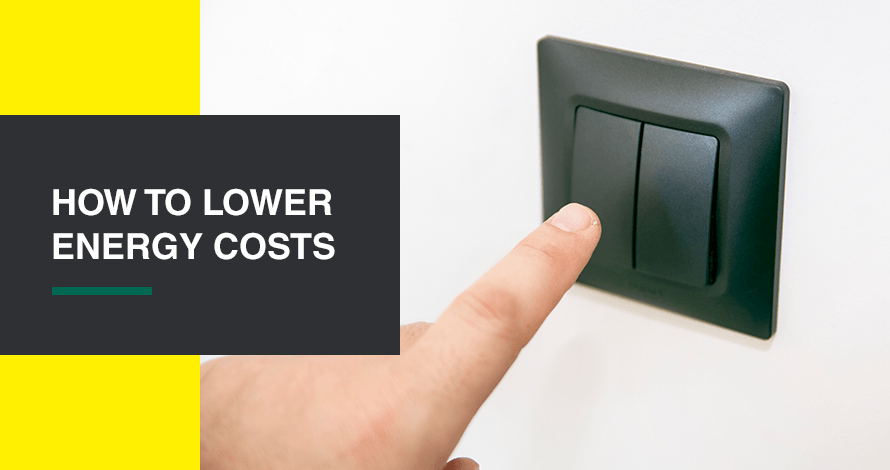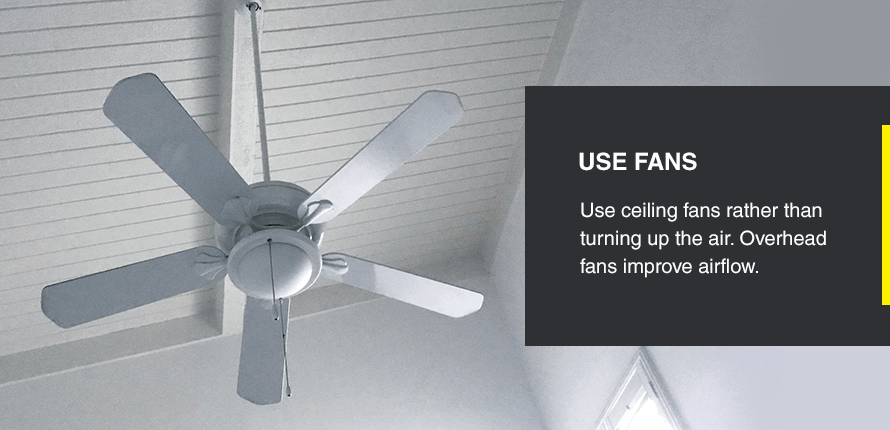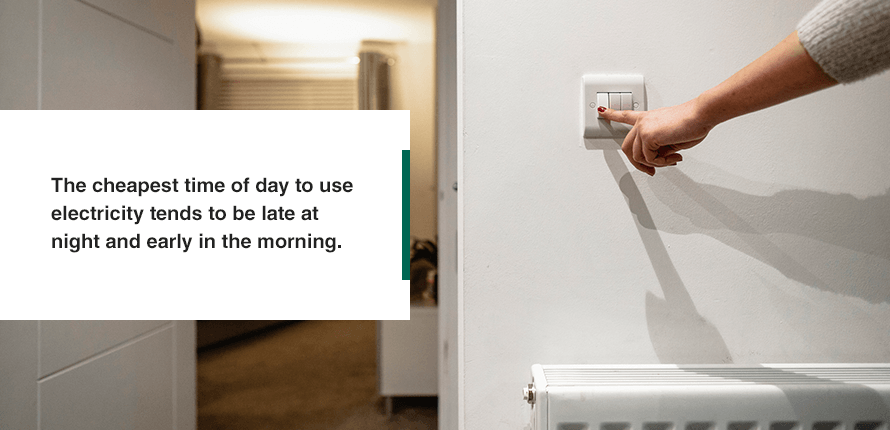
Homeowners across America spend large portions of their earnings on energy. You need electricity to keep your home at a comfortable temperature, maintain fresh food, wash your clothes and dishes, power your devices and light up your spaces. As much as homeowners use electricity, simple improvements in energy-efficiency can add up to significant savings.
If every homeowner used less energy, the impact on the environment would be monumental. You need not make major lifestyle changes to reduce your energy consumption. Basic, inexpensive modifications can yield worthwhile results. Whether you want to reduce your energy consumption for the planet, your wallet or both, use this guide to help you get started.
How Can You Reduce Energy Consumption at Home?
Your everyday habits affect your energy usage more than you might realize. Every time you flip on a switch, adjust the thermostat or use a device, you’re contributing to your monthly bills. Several measures, including modified habits and simple adjustments, can reduce your home’s energy consumption. Here are a few ways to save electricity:
- Skip the screen saver: When you’re not using your computer, shut it down all the way. Screen savers can use just as much electricity as if the device were in use. Why use energy when you have no need for it?
- Use efficient lightbulbs: If you’re still using incandescent bulbs, consider making a switch. Light-emitting diode (LED) bulbs use 25% to 80% less energy than incandescent bulbs while lasting 3 to 25 times longer. If you replace your home’s lightbulbs with energy-efficient alternatives, you can save a great deal on electricity costs. You can find LED bulbs with soft-colored lighting options, mimicking incandescent light. Once you’ve installed LED bulbs, consider using dimmer switches. These allow you to match the lighting to your current needs, extending the lifetime of your bulbs and using less energy.
- Reduce the vampire load: Most modern devices use standby power, even when turned off. Your television, stereo, microwave, washing machines, gaming consoles, phone chargers and other devices keep “sucking up” power when not in use. This has earned the nickname “vampire power.” Across the nation, the cost of these always-on devices accounts for $19 billion per year. This is an average of $165 for each household. If you have a large family and plenty of devices, your yearly vampire power cost may be much higher. To reduce your home’s vampire power consumption, use power strips with “off” switches or simply unplug your devices when not in use.
- Use heating and air conditioning efficiently: Reducing the load on your heating, ventilation and air conditioning (HVAC) system can make a huge difference in your home’s energy consumption.

What Devices Use the Most Electricity?
Certain devices and appliances use more electricity than others. The number one household energy-user is temperature regulation. Space heating and air conditioning take up 51% of a household’s energy use. Next is water heating, then appliances, lighting and media equipment.
If you want to reduce your home’s energy use, the best thing you can do is lighten the burden on your HVAC system. You need not make your home uncomfortable. Instead, here are a few strategies for efficient use of heating and cooling:
- Use fans: Use ceiling fans rather than turning up the air. Overhead fans improve airflow.
- Bundle up: Set milder temperatures overall. You can throw on a sweater in the winter and use fans in the summer.
- Remember daylight: Close curtains in the summer and open them in the winter to help regulate your home’s temperature and light.
- Maintain your HVAC system: Schedule regular HVAC maintenance to make sure your system is operating at peak efficiency.
- Clear vents: Keep indoor and outdoor vents unobstructed so they do not have to overwork.
- Schedule temperature changes: Use a thermostat with scheduling capabilities to take advantage of times when your house is empty.
- Keep filters fresh: Replace HVAC air filters often for improved airflow.

What Time of the Day Is the Cheapest to Use Electricity?
Utility companies charge premiums during peak energy-use hours. Rates range depending on the season, the provider and the time of day. Peak hours often begin in the afternoon and extend into the evening, but time-of-use policies vary. The cheapest time of day to use electricity tends to be late at night and early in the morning.
Of course, these are the times when most people are sleeping. It can be challenging to rearrange your energy-use schedule, but you might wake up a little earlier to complete some high-energy chores. Another option is to use appliances with schedule functions, setting their timers for off-peak hours. You might also consider utilizing alternative energy sources during peak hours. Some homeowners have elected to use a backup battery or solar power, both to save money and reduce their impact on the environment. Either way, you can use alternate power during peak hours to save money.
How Does Energy Usage Vary With Seasons?
Seasonal changes affect energy usage across the country. Outdoor temperatures, school and work schedules, and other factors determine these seasonal variations. The residential sector has the most significant seasonal spikes in energy demands compared to the commercial and industrial sectors. The hottest and coldest times of year come with the most energy consumption. Midsummer and midwinter peaks can reach 67 billion kilowatt-hours.
In the winter and spring, homeowners use the most energy in the morning and evening. This makes sense, as these times represent before and after working hours and the coolest parts of the day. The summer and fall show an opposite trend. Energy usage increases throughout the day, peaking in the early evening. More air conditioning is necessary when the sun is at its highest. In all seasons, energy usage correlates with the sun’s movement and daily temperature variations. During cold months, homeowners require less electricity as the sun and temperatures rise. The opposite is true during warmer months.

Wiretech Company Helps You Increase Your Energy Efficiency
Electricity is a modern necessity, and homeowners need it every single day. Many homeowners find themselves faced with high electrical bills each month. If you want to improve your home’s energy efficiency, you’ll need help from the energy experts. At Wiretech Company, we can inspect and upgrade your home for peak efficiency.
We can give you the tools you need to decrease your energy consumption and lower your monthly bills. We’ll make suggestions for your home and help you implement energy-efficiency solutions. To learn more about how you can pay less for energy, contact the experts at Wiretech Company today.
